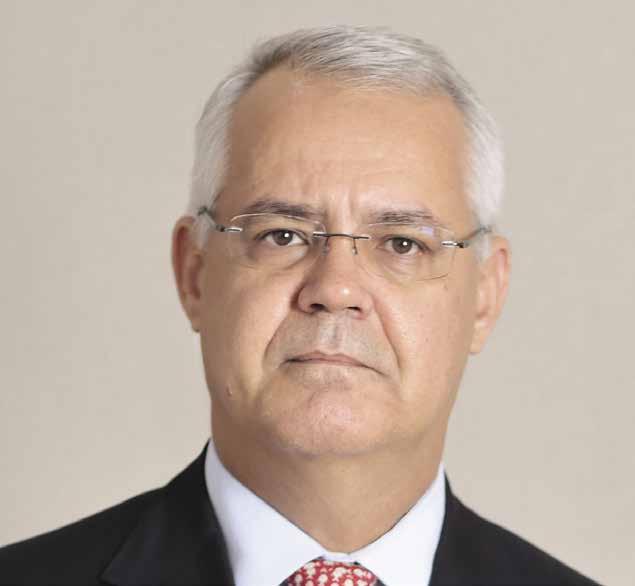OPINIÃO
FRANCISCO SEIXAS DA COSTA, EMBAIXADOR AMBASSADOR
REFLETIR NA DESORDEM REFLECT ON DISORDER
Q
uando o mundo, no final da segunda Guerra Mundial, se organizou institucionalmente em torno das Nações Unidas, ficou criada a ideia, do seu lado ocidental, de que os modelos democráticos, nas suas diversas expressões, a que alguns chamavam liberais, acabariam por funcionar como uma espécie de “benchmark”, para o qual, cedo ou tarde, a maioria dos Estados tenderia a evoluir. Esta atitude encerrava um evidente paternalismo e a convicção de que a razão estava do lado do Ocidente. E expressou-se na tolerância assumida face a certos regimes de matriz autoritária (como foi o caso da ditadura portuguesa), poupados pela “realpoliik”, como se a sua condução ao redil da ordem democrática fosse apenas uma mera questão de tempo, passado que fosse o seu “estágio” de preparação. O modo como a África e até alguma América Latina foram olhadas era também tributário dessa sobranceria, que satisfazia moralmente os seus titulares, que se assumiam como portadores íntimos da verdade política redentora. O colapso da União Soviética, com a derrota ideológica e prática do comunismo, a pujança da economia de mercado e a afirmação desta como a ordem natural das coisas, reforçaram a tal ilusão do “fim da História”, ou, para utilizar o “slang” marxista, o termo das contradições antagónicas que bloqueavam o curso da humanidade. Tudo parecia assim encaminhar o mundo para uma resultante democrática, com modelos mais ou menos diferenciados, num quadro de economia global que se impunha como óbvia e da qual todos acabariam por sair vencedores, tal o impulso ao crescimento que a nova ordem iria necessariamente gerar. Para o bem e para o mal, a História tem muito mais imaginação do que os homens e, ao voltar
20
When the world was institutionally organised around the United Nations after the end of the Second World War, there was this idea in the western side that democratic models, and their different trends, which some called liberals, would eventually work as a kind of benchmark and sooner or later most States would tend to move that way. This attitude enshrined a clear paternalism and the belief that reason was on the side of the West. And this was clearly there in the tolerance towards certain regimes of authoritarian nature (such as the Portuguese dictatorship), spared by the “realpolitik”, as if taking it to the sheepfold of democratic order was just a matter of time, after a preparation “stage”. The way Africa and even some parts of Latin America were looked at was incorporated also some kind of arrogance, which morally pleased those who saw themselves as close bearers of the redemptive political truth. The collapse of the Soviet Union, with the ideological and practical defeat of communism, the strength of the market economy and its affirmation as the natural order of things, reinforced this illusion of the “end of history”, or, to use the Marxist slang, the end of the antagonistic contradictions that blocked the course of humanity. Everything thus seemed to lead the world towards democracy, with more or less differentiated models, within a framework of a global economy that imposed itself as obvious and everyone would end up winning given the huge impulse to growth that the new order would necessarily generate. For good and bad, History has more imagination than men do and all of a sudden some surprises appeared, just around the corner. Globalization did not go exactly as planned. It generated naturally huge advantages and growth, bringing new geographies and sectors into the global economy, reducing poverty and offering opportunities. (Texto escrito ao abrigo do novo acordo ortográfico)



















